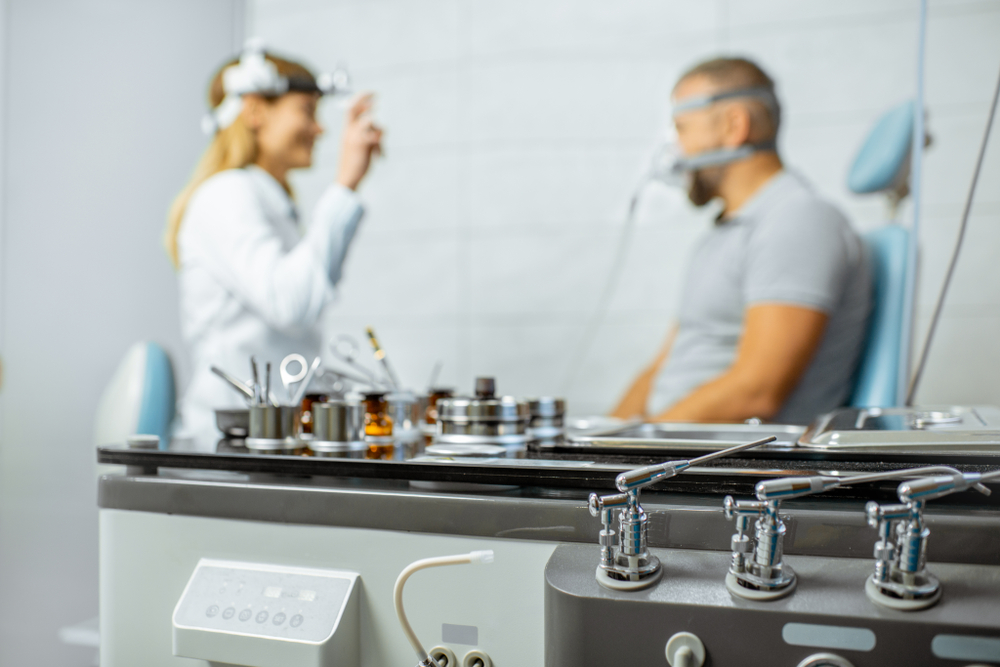Philips Respironics, which issued a mass product recall on specific models of its sleep apnea machines and ventilators in June 2021, recently concluded its first round of post-recall safety testing.
CPAP (continuous positive airway pressure) and BiPAP (bilevel positive airway pressure) machines are medical devices that help sleep apnea sufferers breathe through the night. Sleep apnea is a condition in which breathing stops and starts hundreds of times during the night; if untreated, it can lead to diabetes, high blood pressure, heart failure and premature death.
After consumers complained that foam components made to muffle the loud sounds of the machines were breaking down and being inhaled or swallowed, Philips and the U.S. Food and Drug Administration (FDA) recalled approximately 5.5 million units.
The foam, polyester-based polyurethane (PE-PUR), emits harmful chemicals called volatile organic compounds (VOCs), which are linked to kidney failure, lung cancer, and non-Hodgkin’s lymphoma. Exposure to the foam can also cause skin/respiratory irritation, headaches and asthma.
Philips’ first round of safety testing results, released in December 2022, focused only on the first generation of one device model – the DreamStation. Those units made up about two-thirds of the 5.5 million recalled machines.
Philips conducted the research with five independent testing labs using 181 new, used and lab-aged DreamStation machines. All of them were found to be in compliance with maximum emissions levels. The particles taken from degraded foam were determined “unlikely to result in an appreciable harm to health in patients.”
The tests also examined the VOCs emitted as the foam degrades and found, according to Philips, that exposure is “not anticipated to result in long-term health consequences for patients.”
The company is proceeding with similar tests on other recalled devices, including Trilogy 100/200 ventilators, which contain a different type of PE-PUR foam. Notably, those devices have thus far failed genotoxicity testing.
Philips maintains that it has not found a “direct or indirect correlation” between consumer complaints and foam breakdown.
Philips reportedly knew about the risks of their CPAP machines as early as 2015 but treated complaints as isolated incidents until the recall. While just 30 complaints sparked the recall, the FDA received more than 90,000 between April 2021 and October 2022 – including 260 reports of patient deaths. However, not all of those have been verified as directly linked to the machines.
The company vowed to repair or replace all affected devices within 12 months after the recall, but some still have not been completed. Especially concerning is that some of the repaired devices might still be harmful to consumers.
For some sleep apnea patients, their CPAP or BiPAP machines are the difference between life and death. Patients who were promised a repaired or replaced machine within a year are still waiting, and many have had to make the agonizing choice between going without a device, making it hard to breathe, or continuing to use it, knowing it may be harming them further. Some patients have chosen to remove the sound abatement foam themselves.
The FDA has repeatedly disagreed with Philips’ assessment that its malfunctioning devices don’t increase the risk of cancer or serious injury. Thousands of consumers who’ve become sick from the device disagree and have decided to fight back.
CPAP lawsuits have been filed against Philips for marketing defective devices as safe, despite knowing the risks posed by the PE-PUR foam. Plaintiffs cite breathing problems and cancer diagnoses after using the recalled machines. With so many CPAP lawsuits already filed and more expected to come, they have been consolidated into multidistrict litigation (MDL). This process combines similar cases to be tried under one district and one judge. Consumers may still be able to file a CPAP lawsuit but should consult an attorney. The statute of limitations to file a claim varies by state.













